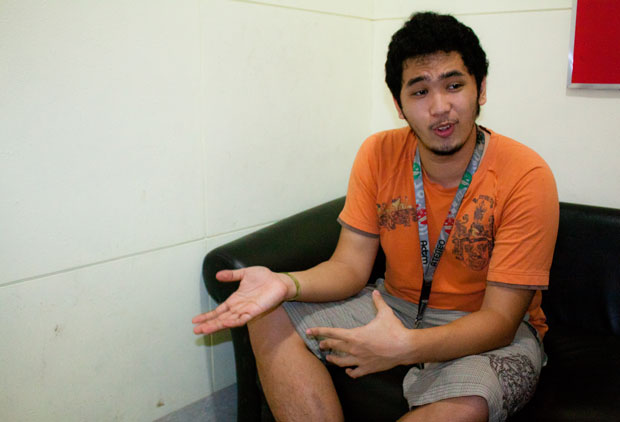ANOTHER STUDENT political group is undergoing a restructuring process.
In number, they are the biggest political group in the Sanggunian, but the Alliance of Student Leaders (ASL) also remains an unaccredited coalition.
Putting accreditation plans on hold, coalition leaders stressed the focus on “internal structuring” by defining the group’s identity and clarifying the coalition’s philosophies.
No need
Former ASL vice chairperson Moses Albiento explained that ASL never had any plans of accreditation to begin with. “The concept of ASL, from the beginning, has always been to be a coalition,” he said.
He added that their current coalition status allows a certain freedom from the rigid political party system, and that the accreditation process prescribes election technicalities that the group does not need at the moment.
The coalition, he said, was formed to give more voting options for the electorate.
ASL was created in part by the former members of the defunct Partido Ignacio during the 2010 General Elections, to support the contenders of the IsaBuhay-IsaGawa – Agila (IBIG-Agila) candidates. Albiento, however, clarified that they are not a restructured Partido Ignacio, but an entirely different group.
There are currently two accredited political parties in the Ateneo: IBIG-Agila and the Christian Union for Socialist and Democratic Advancement (Crusada).
Step-by-step process
ASL chairperson Alvin Yllana describes the restructuring as a step-by-step process. He added that their restructuring was not compelled by pressure from other political groups, saying that ASL had been working on the matter since summer of this year. According to Yllana, the coalition will finish designating officers this month, ready for mobilization by November.
Besides formulating a proper identity for the party, Yllana also wants ASL to have a clearly set philosophy remaining true to the coalition’s ideals of informed, individual decisions. He also proposed forming a structure for the party that would include an elections arm and a management arm. The elections arm is set to launch the campaign for the upcoming 2012 general polls by January.
Yllana also expressed a desire to take ASL beyond the elections by training members and interested parties through talks and training seminars.
Both Yllana and Albiento agreed that any change should be for the benefit of their constituents. “We want to continue what we do… noise and visibility is unnecessary unless it concerns beliefs,” said Yllana. He added that the decision on accreditation faced a long debate, but was ultimately based on the coalition’s identity.
Student relations
Albiento said that ASL does not affiliate itself or identify with any specific ideology or philosophy, but that it values the collective personal philosophies of its members. “We might come out strong by aligning ourselves with an outside party, but we might lose our touch with the student body if ever we do that,” he said.
Besides the internal restructuring, ASL also has to deal with retaining its members. According to some sources, several ASL members have found themselves disillusioned with the party, citing its lack of a definite ideology as an issue. Yllana said that they try to befriend all members, using the catchphrase “ASL family” to entice members to stay. Winning a seat during elections is not a requirement to stay in the coalition. “Losing does not mean [removal of membership],” Yllana said.
Members also complained that compared to other political groups, ASL’s presence is the least felt by the students. Yllana thinks that Crusada’s many projects and IBIG-Agila’s relatively longer existence may be the reason behind the comparison.
But Albiento said that the coalition’s projects are reflected in Sanggunian projects.
“ASL is active directly through the Sanggunian,” he said. “[This] may explain why people don’t see [our projects].”








